Pickleball has emerged as a phenomenon in the sports community, attracting a large number of players of all ages due to its accessibility, community connection, and health benefits. However, alongside this boom, a sad reality is that many scammers have quickly exploited the popularity of this sport to profit, causing numerous players to become victims.
The forms of scams are often varied and sophisticated, targeting both inexperienced newcomers and those who have been involved with pickleball for a long time.
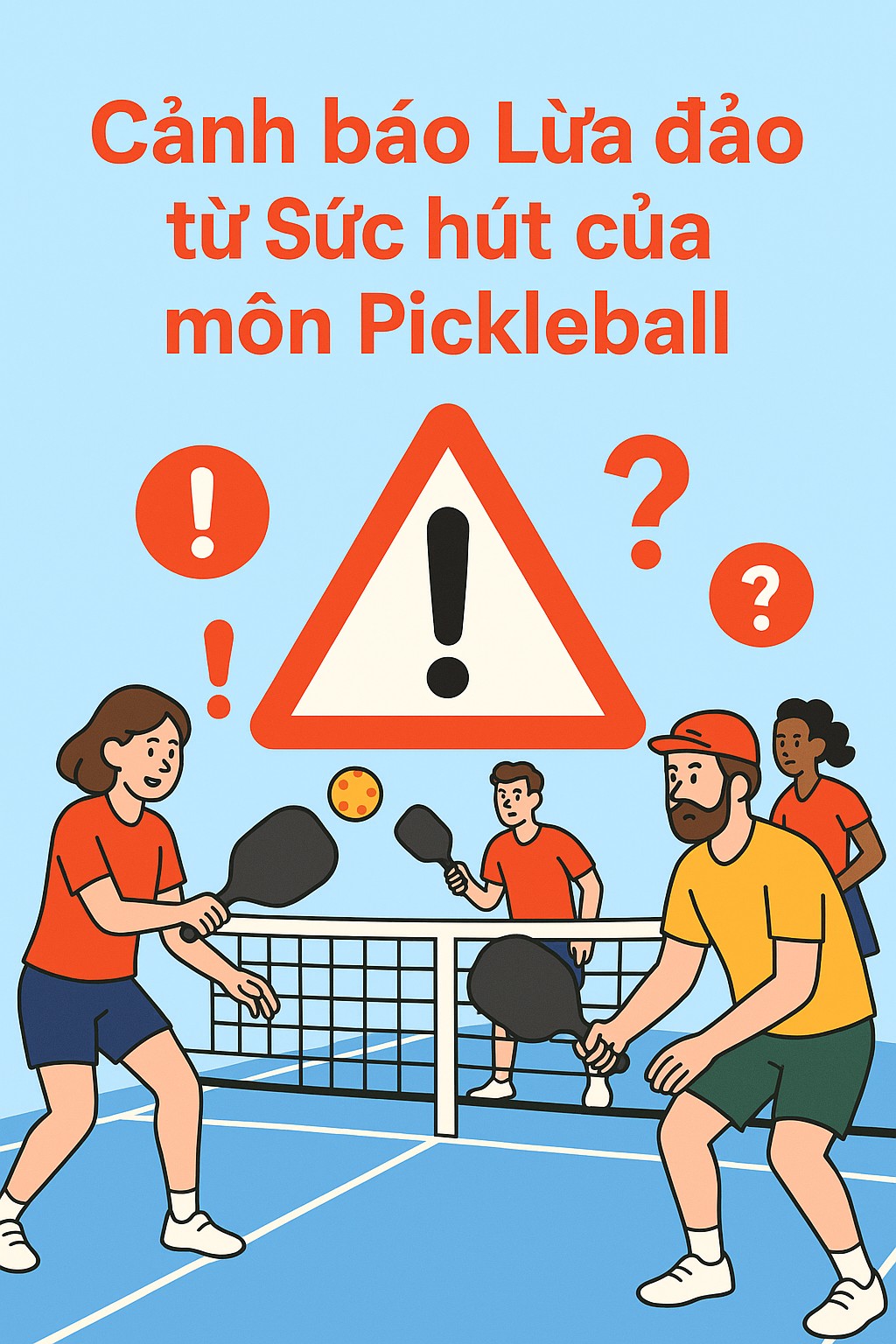
Playing Pickleball, Girl Scammed Out of 2 Billion VND Investment and the Lesson from the “Pie in the Sky”
Recently, a woman named N, living and working in Hanoi, joined the “Newbie Pickleball” group on social media. From this group, N met someone who introduced himself as the head of a large telecommunications technology corporation in Vietnam.
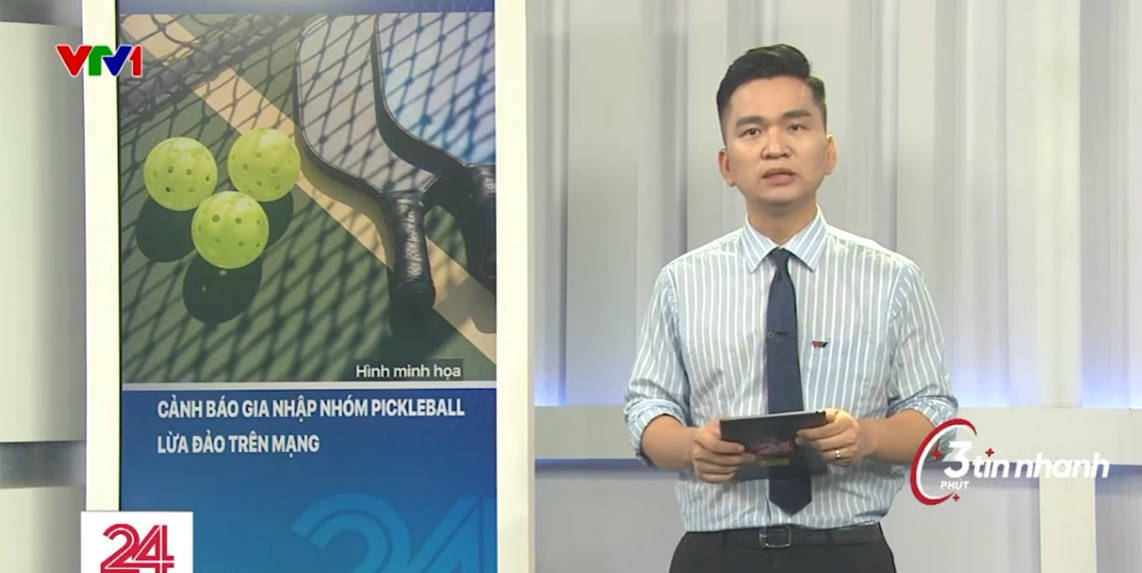
During their conversation, this person mentioned investing in an online game with high potential returns and invited N to participate. Under the false promises of high returns, which were merely a “pie in the sky” to seize investors’ assets, N trusted and invested a total of 2.1 billion VND. However, when she wanted to withdraw her money, N received a notification from the system stating that her account violated the rules and required her to deposit more money before she could withdraw.

Realizing she had been scammed, she immediately reported to the police. In response to this situation, the Hanoi Police advised the public to be cautious when participating in pickleball groups on social media without thorough understanding. Especially with high-return investment invitations, easy money-making schemes could be tricks from scammers. When encountering signs of fraud, individuals should contact law enforcement for prompt resolution as per regulations.

Signing Up for Online Pickleball Lessons: A Costly Mistake
Earlier, towards the end of last year, many fake Facebook accounts impersonating the “Vietnamese Pickleball Federation” appeared on social media, posting advertisements for centers teaching this sport to lure people in and then seize their assets.
Specifically, when individuals signed up for a course, the scammers would require them to download the Telegram app for guidance to complete certain tasks to verify sports equipment and reduce tuition fees. Later, users would be asked to perform high-value tasks. At this point, citing incorrect procedures, the scammers would ask the victims to repeat tasks multiple times or transfer more money to withdraw all the funds transferred. When the amounts reached hundreds of millions, even billions of VND, they would cut off communication and disappear from the Telegram chat group.
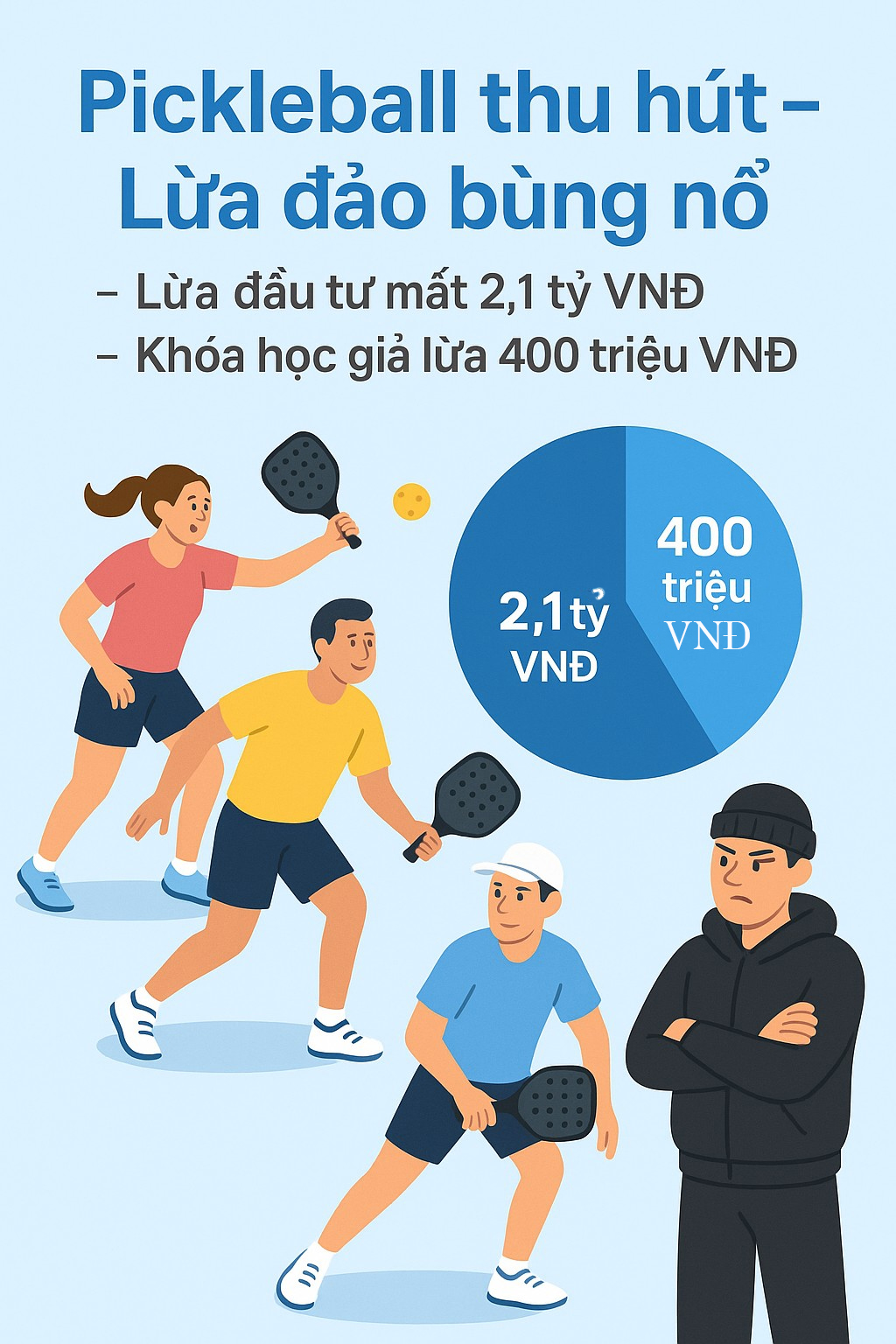
At that time, a woman was scammed out of 400 million VND when she registered for a pickleball course for her child online. After the incident, authorities warned the public to be cautious when signing up for pickleball classes advertised on social media. If they do register, they should visit the centers directly to verify the legitimacy. When encountering signs of fraud, individuals need to immediately contact law enforcement for timely resolution as per regulations.
Additionally, scammers have many other exploitative tricks: selling counterfeit or low-quality paddles and accessories that do not ensure performance and could even cause injuries. In many cases, after receiving deposits or full payments, the scammers would block communication and disappear.
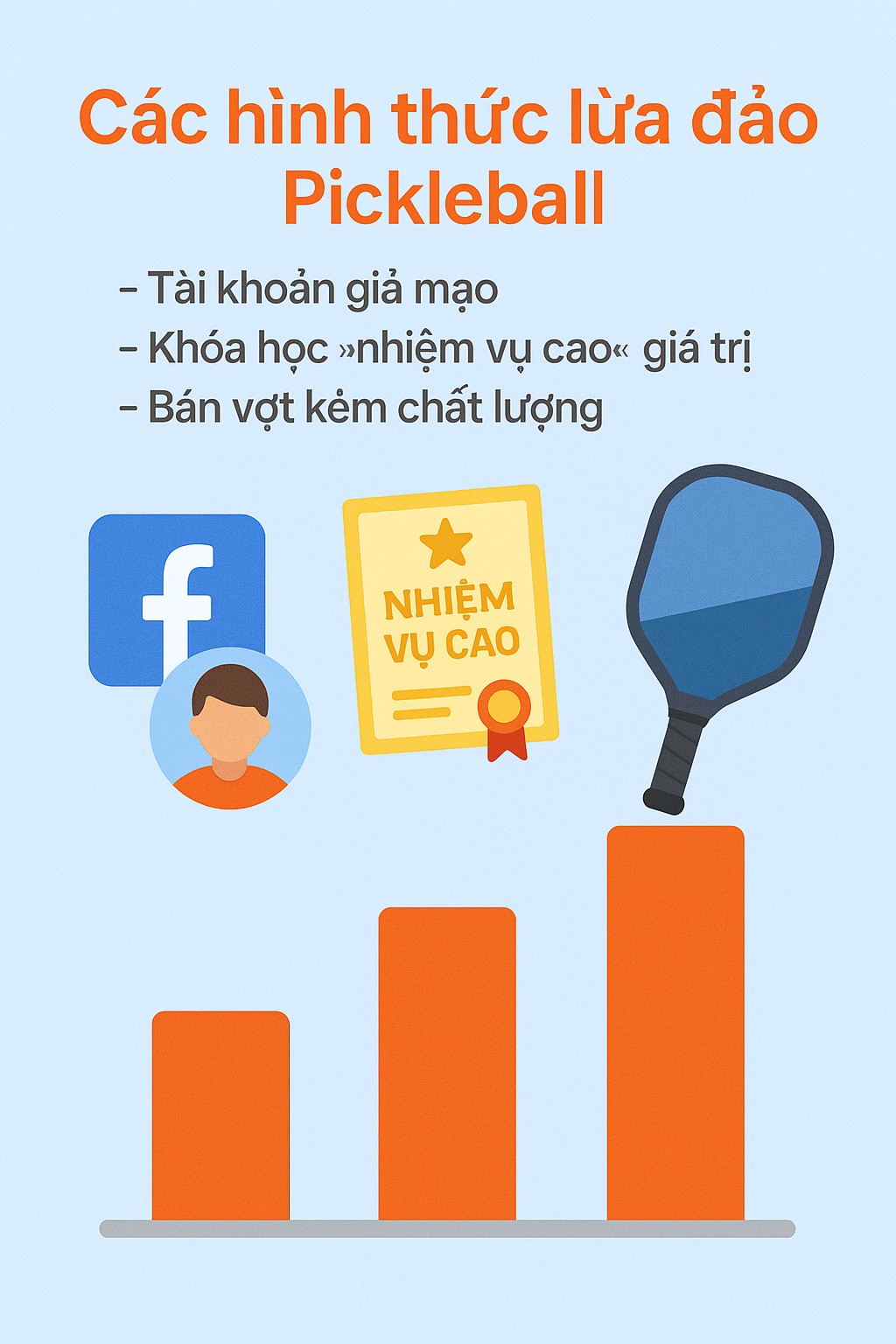
Proactively Protect Yourself
To avoid becoming victims of these scams, pickleball players need to be vigilant and take the following measures:
Check the seller/organization’s information carefully: Before purchasing items, registering for events, or participating in any projects, thoroughly research the credibility of the seller or organizing body. Seek advice from experienced players and reputable pickleball community groups. When participating in tournaments or events, verify the organizing committee’s information, including location and time, clearly. Contact the relevant units directly for confirmation.
Prioritize purchasing from authorized stores or distributors: Instead of opting for cheaper online options, choose to buy paddles and accessories from reputable addresses with clear business licenses or authorized distributors of major brands.
Do not trust high-profit investment invitations: Any investment promises with unusually high returns are likely to be scams. Research the project thoroughly, request legal documents, and consult financial experts before making decisions.
Report suspicious cases: If you notice any signs of fraud, promptly report to the authorities or share information within pickleball communities to warn others.
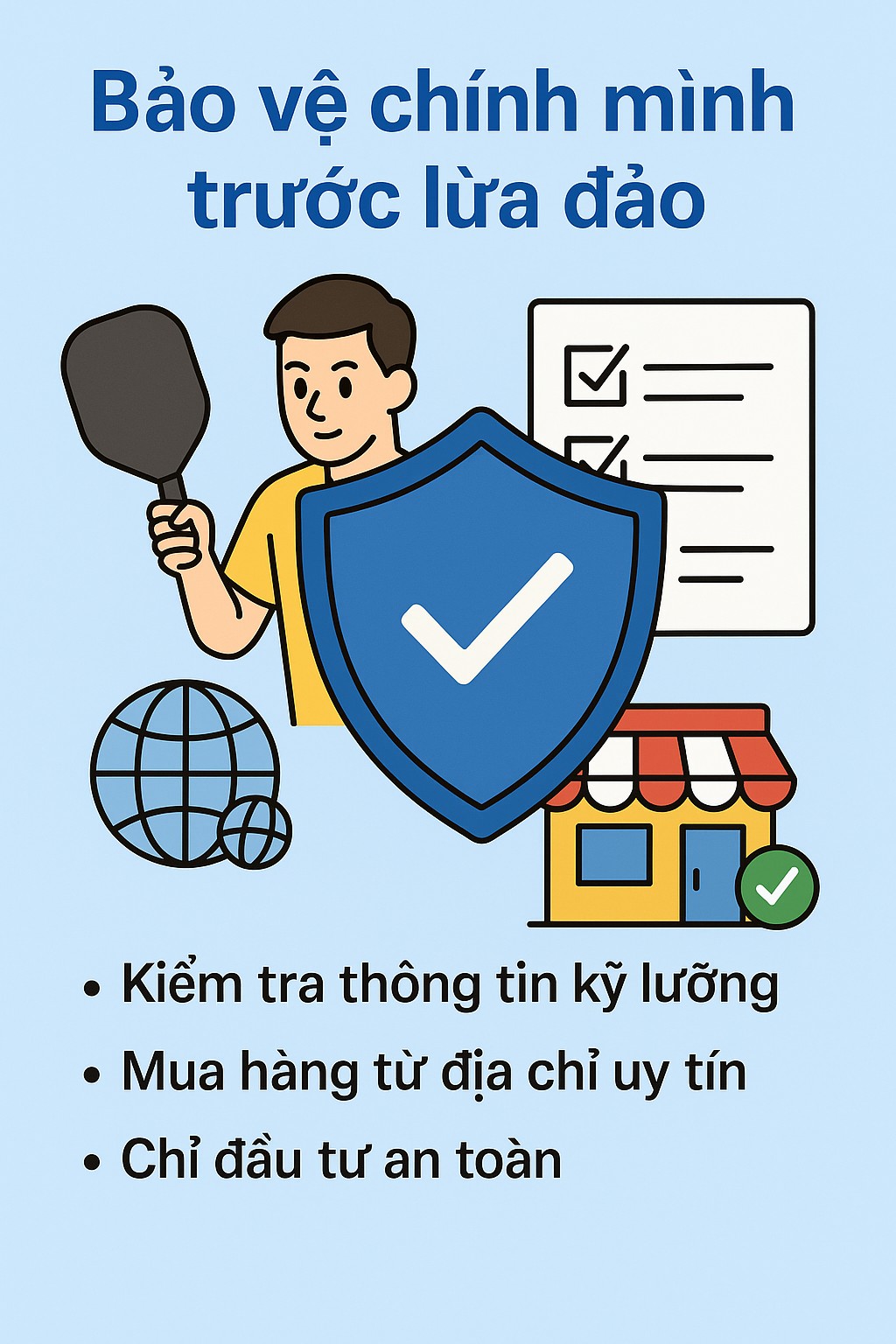
The allure of pickleball is undeniable, but this also creates opportunities for bad actors to exploit. Be a wise and vigilant player to protect yourself from unnecessary traps, ensuring that your joy of pickleball remains complete and safe.